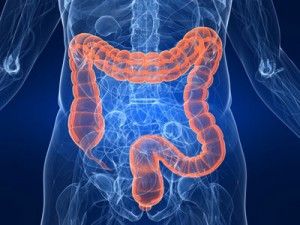Colon Cancer and Colon Surgery
 The colon (also called the large bowel or large intestine) is a tubular structure made up of muscle. It absorbs water and helps prepare waste to be expelled. The colon is usually between 4 and 6 feet in length, the last 6 inches of which is called the rectum. The colon can develop many problems such as polyps, cancer, infection and inflammation.
The colon (also called the large bowel or large intestine) is a tubular structure made up of muscle. It absorbs water and helps prepare waste to be expelled. The colon is usually between 4 and 6 feet in length, the last 6 inches of which is called the rectum. The colon can develop many problems such as polyps, cancer, infection and inflammation.
Diseases of the Colon Treated
- Colon Cancer
- Colon Polyps
- Bowel Obstruction
- Diverticulitis and Diverticular Disease
- Anorectal Disease including Hemorrhoids, Abscess, Anal Fistulas, and Anal Fissures
- Inflammatory Bowel Disease (Crohn’s Disease and Ulcerative Colitis)
- Pilonidal Disease
Symptoms of Colon Problems
- Fever and chills
- Inability to have bowel movements or pass gas
- Nausea with or without vomiting
- Severe abdominal pain
- Rectal bleeding or bloody stool
Work up of Colon Problems
Workup of colorectal disease may include a number of different exams. These tests can be used individually or in combination to pinpoint particular areas of interest that warrant treatment:
- Digital rectal exam (DRE): a gloved finger is inserted to check for tissue changes in the rectum.
- Anoscopy: a small, lubricated scope that is used to look at the lining of the anus.
- Colonoscopy: a lighted telescope used to assess the lining of the colon and rectum.
- CT Scan or MRI: specialized X-rays used to obtain 3-dimensional views of your chest or belly.
- Barium Enema: a specialized X-ray used to assess the lining of the colon or rectum.
Surgery for Colorectal Disease
Certain conditions of the colon can be diagnosed and treated with colonoscopy (i.e., polyps and bleeding). A polyp is a growth that occurs on the colon’s inner lining. The larger the polyp becomes, the greater the chance it can be cancerous (malignant).
Surgery of the colon refers to removal of the abnormal segment of the colon and re-connecting the two ends (colectomy). In special circumstances, a colostomy may need to be created. This is where the intestine drains into a bag through the abdominal wall. This may be temporary or permanent.
Most colectomies performed at Alpine Surgical are performed through a minimally invasive approach. This is also known as laparoscopy. This refers to surgery utilizing multiple small incisions instead of a single large abdominal incision (open or traditional colectomy). A lighted telescope is used to magnify the intestines. With the help of various different grasping tools, the colon is removed and reconnected. This offers a less painful alternative to traditional colon surgery and a quicker recovery.
Anal Fissures are generally treated without surgery upfront. If these fail to improve, surgery may be necessary. This is an outpatient procedure called a lateral internal sphincterotomy.
Anal Fistulas are generally managed as an outpatient surgical procedure. This may include anal fistulotomy or seton placement.
Anal abscesses are often treated in office. Sometimes, these infections need to be drained with the help of an anesthesiologist in the operating room.
Hemorrhoids are typically managed without surgery initially. If symptoms fail to improve, various different personalized treatment options are available. These range from office based banding of internal hemorrhoids, surgical excision of internal or external hemorrhoids, or stapling of larger symptomatic internal hemorrhoids (PPH).
Preparing for Colon Surgery
- Prior to surgery, you may need to discontinue certain medications that interfere with blood clotting such as Coumadin.
- You may be required to drink a bowel prep the day before surgery. This is used to cleanse the colon prior to surgery.
- You will be requested to not eat or drink for eight hours before surgery
- The night before your surgery, an enema or laxatives cleans your bowel.
- Certain specialized tests may be necessary prior to surgery. This includes blood tests, an EKG to check your heart, or a chest x-ray to name a few.
Getting Back to Normal
- Outpatient procedures: You can expect to experience rectal pain for at least the first week. You should expect to take time off from work to recover during this period.
- Inpatient procedures: Without complications, most patients can expect to stay in the hospital for three to eight days following colon surgery.
- You will be allowed to drink a clear liquid diet the night of surgery or the following day in most cases. After that, your diet will be advanced to regular food as tolerated.
- If you have a colostomy, you will receive training on how to properly care for yourself. A specially trained stoma nurse will instruct you on how to change your colostomy bag or how to irrigate the stoma so that a bag may not be necessary.
- You should begin to feel normal again after about six weeks, but should avoid heavy lifting and strenuous exercise. You may still tire easily for several months, and should be sure to rest whenever you feel fatigued.
- You may be able to resume normal activities after two months, but should expect to take time off from work for two weeks to three months.
- Regular follow-up visits will be arranged after your discharge from the hospital. Be sure to follow a high-fiber, low-fat diet as you resume your daily lifestyle.
